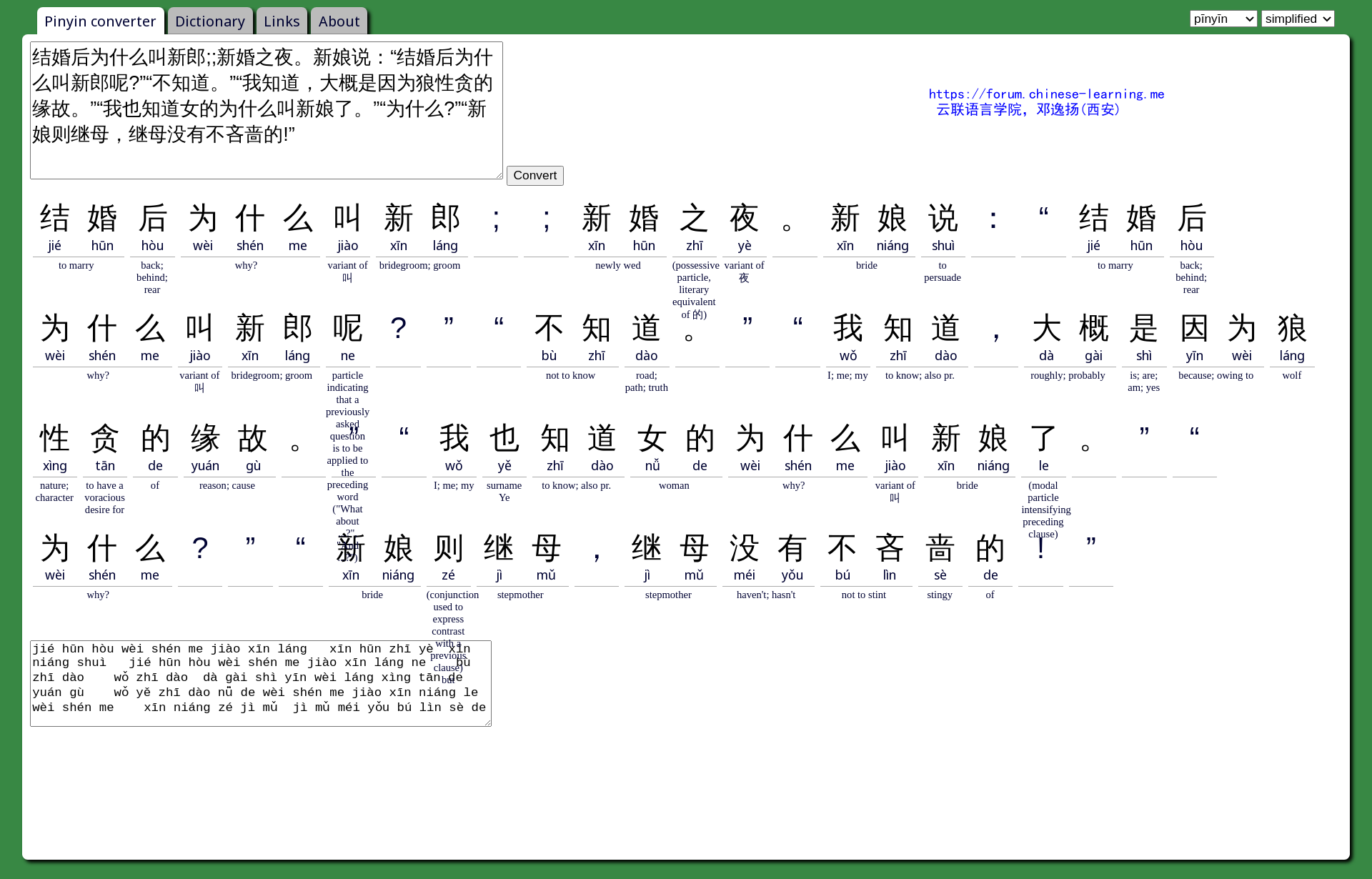
Show Pīnyīn
新婚之夜。新娘说:“结婚后为什么叫新郎呢?”
“不知道。”
“我知道,大概是因为狼性贪的缘故。”
“我也知道女的为什么叫新娘了。”
“为什么?”
“新娘则继母,继母没有不吝啬的!”
xīnhūnzhīyè 。 xīnniáng shuō : “ jiéhūn hòu wèishénme jiào xīnláng ne ? ”
“ bù zhīdào 。 ”
“ wǒ zhīdào , dàgài shìyīnwéi lángxìng tān de yuángù 。 ”
“ wǒ yě zhīdào nǚ de wèishénme jiào xīnniáng le 。 ”
“ wèishénme ? ”
“ xīnniáng zé jìmǔ , jìmǔ méiyǒu bù lìnsè de ! ”

Wedding night. The bride said: "Why is it called the groom after marriage?"
"have no idea. "
"I know, probably because of wolfish greed."
"I also know why a woman is called a bride."
"Why?"
"The bride is the stepmother, stepmothers are not stingy!".
Noche de bodas. La novia dijo: "¿Por qué se llama el novio después del matrimonio?"
"no tienen idea. "
"Lo sé, probablemente debido a la codicia lobuna".
"También sé por qué una mujer se llama novia".
"¿Por qué?"
“La novia es la madrastra, ¡las madrastras no son tacañas!”.
Nuit de noces. La mariée a dit: "Pourquoi s'appelle-t-il le marié après le mariage?"
"Aucune idée. "
"Je sais, probablement à cause de la cupidité d'un loup."
"Je sais aussi pourquoi une femme s'appelle une mariée."
"Pourquoi?"
"La mariée est la belle-mère, les belles-mères ne sont pas avares!".
結婚式の夜。花嫁は言った:「なぜ結婚後に新郎と呼ばれるのですか?」
"全く分かりません。 "
「わかってるよ、多分オオカミの欲のせいだよ」
「女性が花嫁と呼ばれる理由も知っています。」
"なぜ?"
「花嫁は継母であり、継母はけちではありません!」.
Hochzeitsnacht. Die Braut sagte: "Warum heißt es nach der Hochzeit Bräutigam?"
"keine Ahnung. "
"Ich weiß, wahrscheinlich aus wölfischer Gier."
"Ich weiß auch, warum eine Frau Braut genannt wird."
"Warum?"
"Die Braut ist die Stiefmutter, Stiefmütter geizen nicht!".